- In Committee Assembly
- In Committee Senate
- On Floor Calendar Assembly
- On Floor Calendar Senate
- Passed Assembly
- Passed Senate
| Assembly Actions - Lowercase Senate Actions - UPPERCASE | |
|---|---|
| Feb 02, 2022 | referred to energy and telecommunications |
co-Sponsors
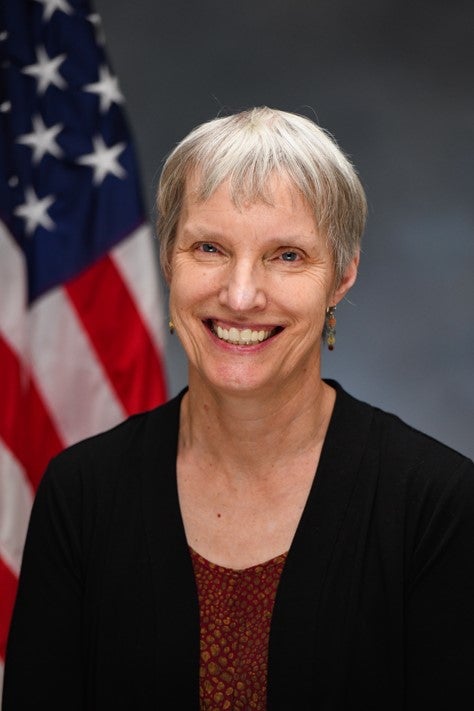
(D, WF) 48th Senate District

(D, WF) Senate District
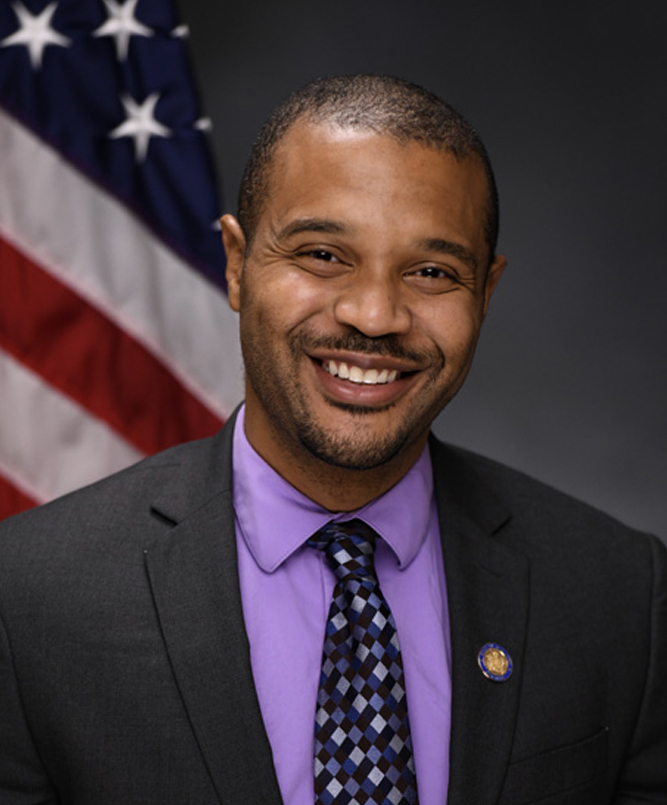
(D, WF) 25th Senate District
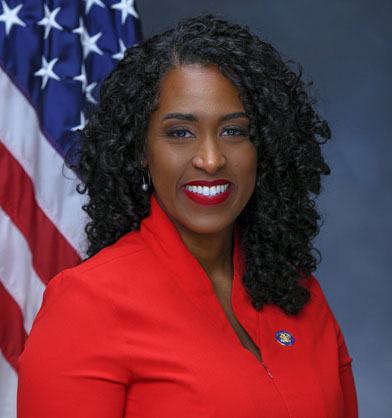
(D, WF) 55th Senate District
View additional co-sponsors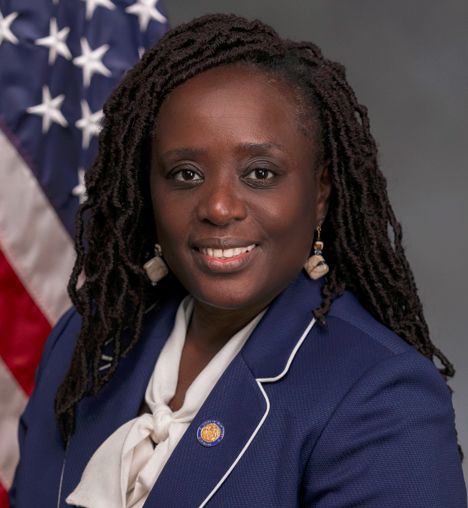
(D) 30th Senate District
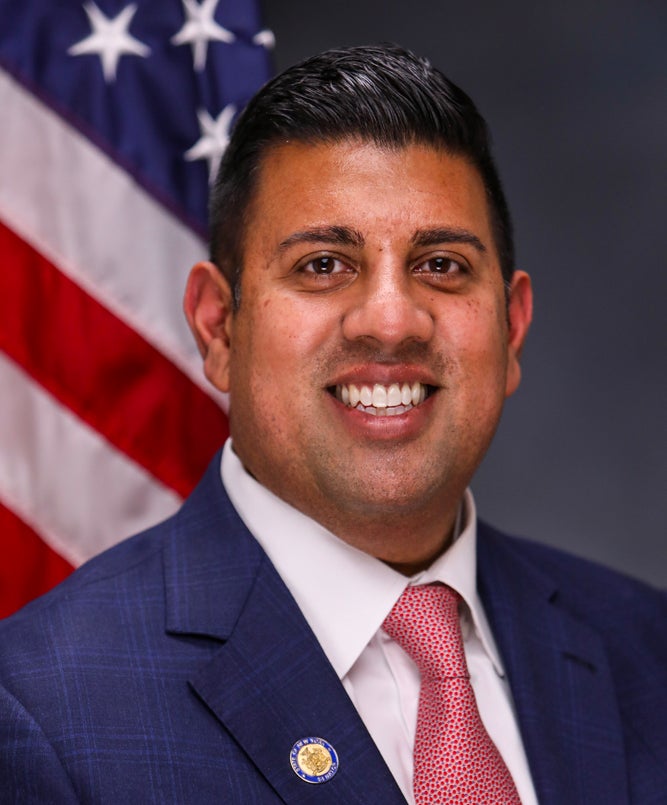
(D, WF) 56th Senate District

(D, WF) 12th Senate District
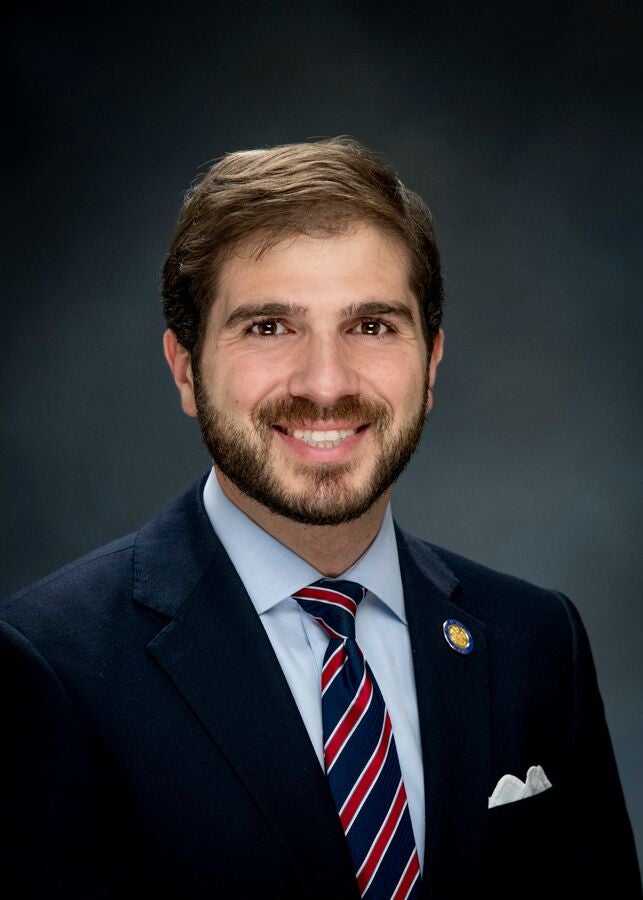
(D) 26th Senate District
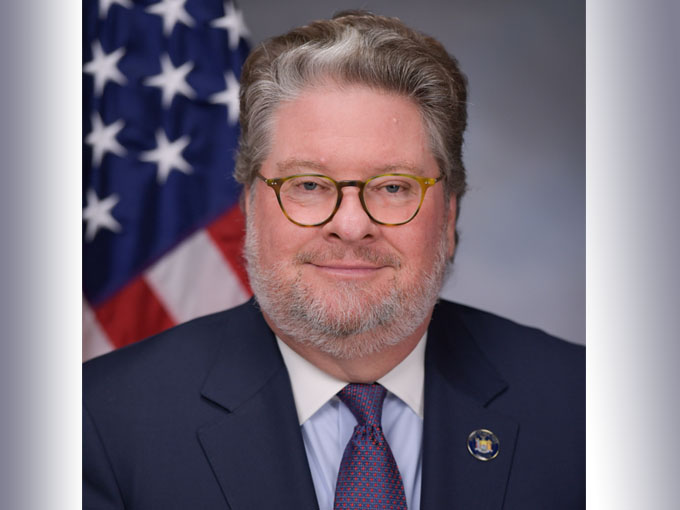
(D, WF) 40th Senate District
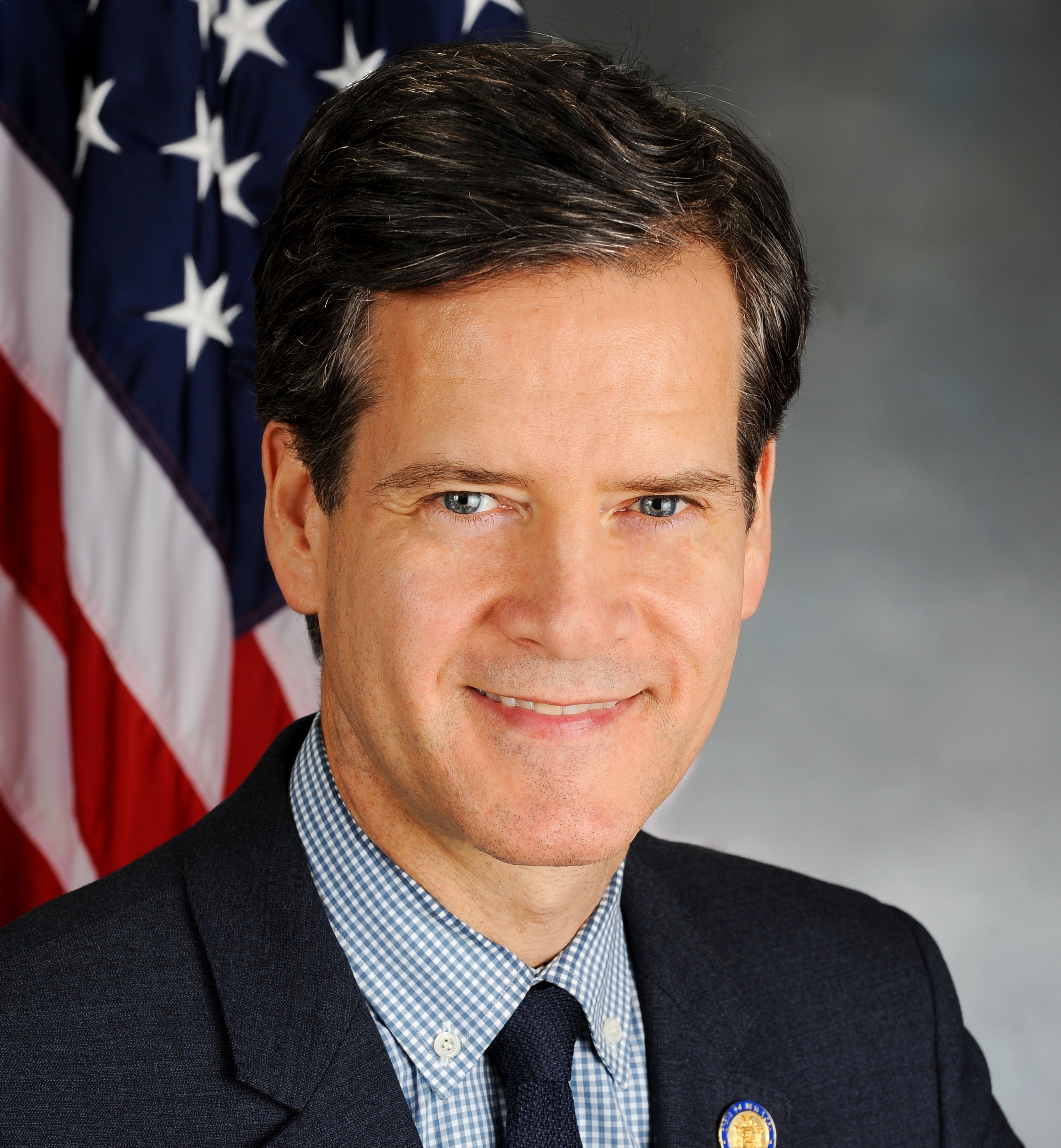
(D, WF) 47th Senate District

(D) 27th Senate District
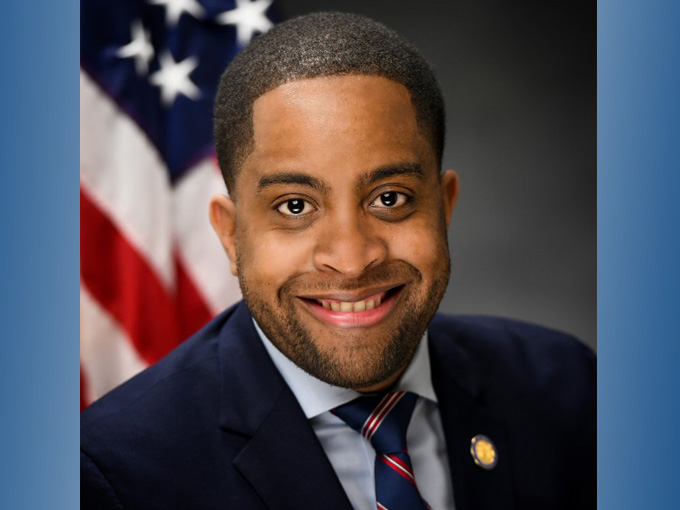
(D) 20th Senate District
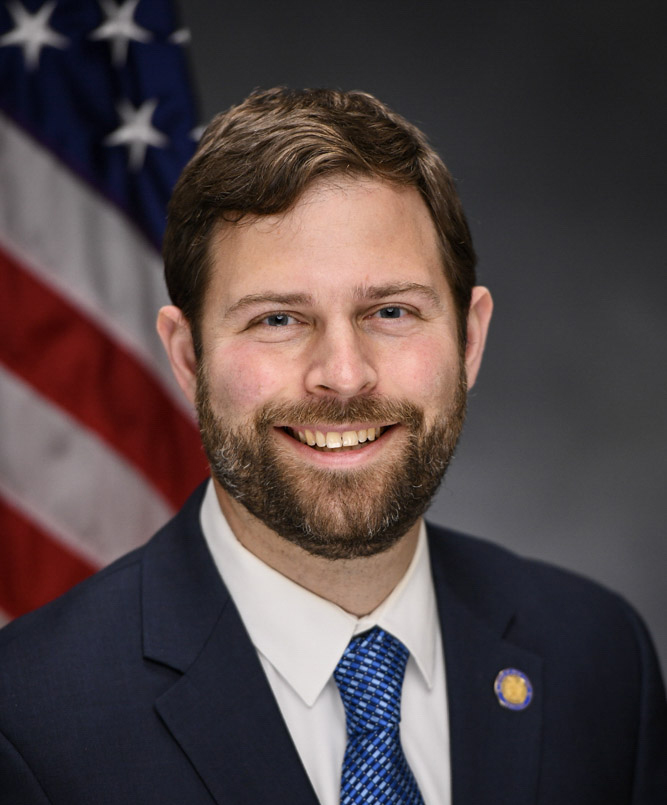
(D, WF) Senate District

(D, WF) 18th Senate District
2021-S8198 (ACTIVE) - Details
See Assembly Version of this Bill: A9329 Current Committee: Senate Energy And Telecommunications Law Section: Public Service Law Laws Affected: Amd §§4, 5, 30, 31, 66 & 66-a, rpld §§66-b & 66-g, add §§66-s & 77-a, Pub Serv L; amd §12, Transp Corps L Versions Introduced in 2023-2024 Legislative Session: S2016, A4592
2021-S8198 (ACTIVE) - Summary
Aligns utility regulation with state climate justice and emission reduction targets; repeals provisions relating to continuation of gas service; repeals provisions relating to the sale of indigenous natural gas for generation of electricity.
2021-S8198 (ACTIVE) - Sponsor Memo
BILL NUMBER: S8198 SPONSOR: KRUEGER TITLE OF BILL: An act to amend the public service law and the transportation corpo- rations law, in relation to aligning utility regulation with state climate justice and emission reduction targets; to repeal section 66-b of the public service law relating to continuation of gas service; and to repeal section 66-g of the public service law relating to the sale of indigenous natural gas for generation of electricity PURPOSE: The purpose of the bill is to ensure that state regulation and oversight of gas utilities provides for the equitable achievement of the climate justice and emission reduction mandates set forth in the Climate Leader- ship and Community Protection Act (the "CLCPA"). This bill provides the Public Service Commission with the authority and direction to align gas utility regulation and gas system planning with the CLCPA's mandates. Specifically, the bill removes the legal basis and subsidies driving the expansion of gas systems and requires the commission to adopt rules and develop a statewide gas service transition plan that is consonant with
decreasing gas sales and, where appropriate, the decommissioning of the gas system. SUMMARY OF SPECIFIC PROVISIONS: Section 1: Names the bill the Gas Transition and Affordable Energy Act. Section 2: Legislative findings. Section 3: Amends section 4, subdivision 1, of the public service law. Provides that the public service commission has "all powers necessary and proper" to facilitate achievement of the CLCPA climate justice and emission reduction targets as set forth in article seventy-five of the environmental conservation law. Section 4: Amends section 5, subdivision 1 and 2, of the public service law. Directs the commission to include utility sector achievement of the CLCPA climate justice and emission reduction targets as a core planning objective included in its "public service responsibilities". Section 5: Amends section 30 of the public service law. Removes a resi- dential customer's legal entitlement to utility gas and steam services, while maintaining this entitlement for electric service. Directs the commission, after developing a statewide gas utility service decarboni- zation plan, to actively encourage a transition away from combustible fuels and ensure that all residential customers have access to electric heating and cooling services. Clarifies that it is the policy of the state that gas service for existing customers is maintained in a manner that is safe, nondiscriminatory, and in all respects just and reasonable while providing for the orderly phase-out of fossil gas. Codifies state goal that low-to-moderate income customers are adequately protected from bearing energy burdens greater than 6% of their income, including those burdens imposed by the cost to purchase and operate electric equipment needed to facilitate their termination of gas service. Section 6: Amends section 31, subdivisions 1,3, and 4, of the public service law. Implements the policy established in section 5 with respect to applications for electric and gas services. Acknowledges gas service may be limited or discontinued to facilitate achievement of the CLCPA climate justice and emission reduction targets. Requires utilities to provide clear, timely information on incentives and opportunities for installing energy-efficient equipment and other measures that provide alternatives to gas use. Removes the 100 ft rule subsidy, which provides ratepayer-funded utility incentives for the expansion of utility system infrastructure. Section 7: Amends section 12 of the transportation corporations law. Removes the entitlement of non-residential customers to utility gas service, but maintains it for electric service. Empowers the commission to govern extensions of gas service to non-residential customers. Section 8: Amends section 66, subdivision 2, of the public service law and creates a new subdivision 12-e. Grants the commission authority to order the curtailment or discontinuance of the use gas for any customer, group of customers, or section of the gas distribution system, where the commission has determined that such curtailment or discontinuance is reasonably required to implement state energy policy. Requires the commission in gas utility rate proceedings to review a gas utility's capital construction plan and to establish a non-pipeline alterative process to examine feasible alternatives to construction of new gas infrastructure. Empowers the commission to require the electric utility with a service area overlapping the service area of the gas utility to participate in the non-pipeline alterative process, including partic- ipation in financing, where such alternative includes conversion of gas customers to electricity usage. Section 9: Amends section 66-a, subdivisions 1,2, and 3 and creates new subdivisions 4 and 5, of the public service law. Establishes that when gas service is limited, the availability of gas service shall be allo- cated to protect the health and safety and to avoid undue hardship, prioritizing low to-moderate income customers and hard-to-electrify industrial and commercial uses. Affirms the commission's authority to limit or discontinue availability of gas service upon the finding that continued gas service is not consistent with achievement of the CLCPA climate justice and emission reduction targets. Clarifies that gas conservation measures include energy-efficient electrification of gas end uses. Requires the commission to determine, consistent with the state energy plan, conditions under which new or additional gas service is warranted during the phase out of gas use. Authorizes the commission to require that utilities provide coordination assistance and financial assistance to identify and adopt alternatives where applications for new gas service are denied. Section 10: Repeals section 66-b of the public service law. Removes the entitlement to continuation of gas service following the demolition and reconstruction of any structure owned by a customer. Section 11: Creates a new section 66-s to the public service law. Prohibits gas utilities from expanding gas service to new geographic areas where gas service was not previously available. Section 12: Repeals section 66-g of the public service law. Removes the requirement that utilities enter long-term contracts to purchase or wheel electricity produced from indigenous natural gas supplies when economically reasonable. Section 13: Creates a new section 77-a to the public service law. Requires the commission to initiate one or more proceedings to better align its regulation of utility services with the timely achievement of the CLCPA climate justice and emission reduction targets. Commission requirements include to: (a) Conduct a review of the public service law and commission rules and policy guidance to identify barriers to the timely, equitable achieve- ment of the CLCPA climate justice and emission reduction targets. Report to the legislature on its findings, actions it plans to take, and make recommendations for further statutory amendments that may be needed to facilitate the timely achievement of such targets. (b) Amend the commission rules and regulations governing allowances for the extension of gas and electric service. Eliminate line extension allowances for new gas service. Allows the commission to increase line extension allowances for new electric service, including additional allowances to buildings that are made ready for beneficial electric loads such as those with electric vehicle charging facilities or grid interactive buildings. (c) Establish a statewide gas service transition plan to guide the equi- table transition of the gas distribution industry based on clear biannu- al gas sales reduction targets, robust analysis, and consideration of several pathways for the transition. Evaluate and develop a variety of new rate structures and rate classes to facilitate equitable and afford- able electrification of gas end uses. After the plan is established, requires each gas utility to submit a proposal to the commission to align its gas system operations with the statewide gas service transi- tion plan. (d) Requires the commission to revise its rules and regulations for conducting benefit-cost analyses to ensure that the methodology and the base financial and framework assumptions support achievement of the CLCPA climate justice and emission reduction targets. (e) Clarifies that municipalities are not preempted from requiring all- electric buildings, zero-emission buildings, or otherwise prohibiting new gas service connections for new buildings and major renovations. Section 14. Establishes that the act takes effect immediately. JUSTIFICATION: New York urgently needs to align its regulation and oversight of gas utilities with the climate and equity mandates established by the CLCPA. New York's current public service law is not compatible with the CLCPA. The PSL promotes gas system expansion by establishing a gas utility obligation to serve any customer upon request while providing that existing customers subsidize new service connections, all of which move the state away from the important climate justice directives and binding emissions limits in the CLCPA. To meet the CLCPA's bold climate and equity mandates, New York will need to drastically reduce gas use. This poses a particular challenge for gas utilities because their business models are currently premised on expanding not contracting - gas infrastructure and services. Allowing the tension between the public service law and the CLCPA to go unad- dressed will significantly delay achievement of the CLCPA mandates while dramatically exacerbating affordability and equity challenges. Low income New Yorkers will suffer the most if the state fails to properly plan for the inevitable contraction of the gas system, as they will be among a shrinking group of customers burdened with the cost of maintain- ing an increasingly obsolete distribution network. Aligning regulation and oversight of gas utilities with the CLCPA's climate and equity mandates requires removing the legal basis and subsi- dies for the expansion of gas systems, as well as adopting rules and business practices that are consonant with decreasing gas sales and, where appropriate, the decommissioning of sections of the gas system. This bill gives the Public Service Commission the authority and direc- tion to align gas utility regulation and system planning with equitable achievement of the CLCPA's climate justice and emission reduction mandates. LEGISLATIVE HISTORY: None. FISCAL IMPACT ON THE STATE: Undetermined. EFFECTIVE DATE: This act shall take effect immediately.
2021-S8198 (ACTIVE) - Bill Text download pdf
S T A T E O F N E W Y O R K ________________________________________________________________________ 8198 I N S E N A T E February 2, 2022 ___________ Introduced by Sen. KRUEGER -- read twice and ordered printed, and when printed to be committed to the Committee on Energy and Telecommuni- cations AN ACT to amend the public service law and the transportation corpo- rations law, in relation to aligning utility regulation with state climate justice and emission reduction targets; to repeal section 66-b of the public service law relating to continuation of gas service; and to repeal section 66-g of the public service law relating to the sale of indigenous natural gas for generation of electricity THE PEOPLE OF THE STATE OF NEW YORK, REPRESENTED IN SENATE AND ASSEM- BLY, DO ENACT AS FOLLOWS: Section 1. Short title. This act shall be known and may be cited as the "gas transition and affordable energy act". § 2. Legislative findings. The legislature finds and declares that: 1. The Climate Leadership and Community Protection Act (the "CLCPA") requires greenhouse gas emission reductions from all sectors, which will entail, among other things, converting buildings throughout the state from heating and cooking with combustible fuels to heating and cooking with non-emitting sources such as energy-efficient air, ground, and water sourced electric heat pumps, which also provide cooling, and elec- tric and induction stoves. 2. Fossil fuels burned in buildings for heating, hot water, and cook- ing account for approximately one-third of greenhouse gas emissions in New York State, enabled by utility provision of gas service via pipeline to the property. 3. Heating and cooking with fossil fuels impacts indoor and outdoor air quality, resulting in health impacts such as increased rates of asthma and heart disease. 4. Decarbonization of buildings will require changes to the utility gas regulations and gas planning processes in order to ensure an equita- ble transition and manage economic risks to gas customers, munici- palities, and the utilities as electrification proceeds. 5. Over two and a half million households in New York struggle to pay their heating bills. The Public Service Commission has declared, but not yet achieved the goal that customers should not pay more than 6% of their income for utility energy services, a number based on a nationally accepted standard.
EXPLANATION--Matter in ITALICS (underscored) is new; matter in brackets [ ] is old law to be omitted. LBD14537-01-2 S. 8198 2 6. Thus, it is the intent of the legislature that passage of this act is for the following purposes: a. to ensure that the Public Service Law regarding regulation and oversight of gas utilities will provide for the timely and strategic retirement of the gas distribution system in a just and affordable manner as required to meet the climate justice and emission reduction mandates of the CLCPA; b. to ensure that the Public Service Commission has the statutory authority and direction to align utility regulations and planning with the CLCPA climate justice and emission reduction mandates and to require the Public Service Commission to take a proactive role in the timely identification and amendment of such laws, regulations or rulings as may pose an impediment to achieving CLCPA mandates; c. to end ratepayer-subsidized utility incentives for fossil fuel expansion while ensuring the equitable provision of electric service and efficient heating, cooling, cooking, and hot water services; d. to require the Public Service Commission, within one year, to develop a statewide gas utility services decarbonization plan based on clear biannual gas sales reduction targets, robust analysis, and consid- eration of several electrification pathways; e. to ensure affordable access to electric heating and cooling services and to protect low-income and moderate-income customers from undue burdens as they electrify their buildings; and f. to clarify that municipal gas bans are not preempted under New York State law. § 3. Subdivision 1 of section 4 of the public service law, as amended by chapter 594 of the laws of 2021, is amended to read as follows: 1. There shall be in the department of public service a public service commission, which shall possess the powers and duties hereinafter speci- fied, and also all powers necessary or proper to enable it to carry out the purposes of this chapter AND TO ENABLE ACHIEVEMENT OF THE CLIMATE JUSTICE AND EMISSION REDUCTION TARGETS IN ARTICLE SEVENTY-FIVE OF THE ENVIRONMENTAL CONSERVATION LAW, AND SUCH SUCCESSORS IN LAW AND FUNCTION AS MAY ARISE FROM TIME TO TIME. The commission shall consist of five members, to be appointed by the governor, by and with the advice and consent of the senate. A commissioner shall be designated as chairman of the commission by the governor to serve in such capacity at the pleasure of the governor or until his term as commissioner expires whichever first occurs. At least one commissioner shall have experience in utility consumer advocacy. No more than three commissioners may be members of the same political party unless, pursuant to action taken under subdivi- sion two of this section, the number of commissioners shall exceed five, and in such event no more than four commissioners may be members of the same political party. § 4. Subdivisions 1 and 2 of section 5 of the public service law, subdivision 1 as amended and subdivision 2 as added by chapter 155 of the laws of 1970, are amended to read as follows: 1. The jurisdiction, supervision, powers and duties of the public service commission shall extend under this chapter: [b.] A. To the manufacture, conveying, transportation, sale or distribution of gas (natural or manufactured or mixture of both) and electricity for light, heat, COOLING, or power, to gas plants and to electric plants and to the persons or corporations owning, leasing or operating the same. S. 8198 3 [c.] B. To the manufacture, holding, distribution, transmission, sale or furnishing of steam for heat or power, to steam plants and to the persons or corporations owning, leasing or operating the same. [d.] C. To every telephone line which lies wholly within the state and that part within the state of New York of every telephone line which lies partly within and partly without the state and to the persons or corporations owning, leasing or operating any such telephone line. [e.] D. To every telegraph line which lies wholly within the state and that part within the state of New York of every telegraph line which lies partly within and partly without the state and to the persons or corporations owning, leasing or operating any such telegraph line. [f.] E. To the furnishing or distribution of water for domestic, commercial or public uses and to water systems and to the persons or corporations owning, leasing or operating the same. [g.] F. To every stock yard within the state and to the stock yard company owning, leasing or operating the same, to the same extent and in respect to the same objects and purposes as such jurisdiction extends, under this chapter, to depots, freight houses and shipping stations of a common carrier, including the duty of such stock yard company to submit reports and be subjected to investigation as if it were a common carri- er, and the powers and duties of such commission to fix charges and make and enforce orders relating to adequate service by such company. [h.] G. A corporation or person owning or holding a majority of the stock of a common carrier, gas corporation or electrical corporation subject to the jurisdiction of the public service commission shall be subject to the supervision of the public service commission in respect of the relations between such common carrier, gas corporation or elec- trical corporation and such owners or holders of a majority of the stock thereof in so far as such relations arise from or by reason of such ownership or holding of stock thereof or the receipt or holding of any money or property thereof or from or by reason of any contract between them; and in respect of such relations shall in like manner and to the same extent as such common carrier, gas corporation or electrical corpo- ration be subject to examination of accounts, records and memoranda, and shall furnish such reports and information as the public service commis- sion shall from time to time direct and require, and shall be subject to like penalties for default therein. 2. The commission shall encourage all persons and corporations subject to its jurisdiction to formulate and carry out long-range programs, individually or cooperatively, for the performance of their public service responsibilities, INCLUDING THE ACHIEVEMENT OF THE CLIMATE JUSTICE AND EMISSION REDUCTION TARGETS IN ARTICLE SEVENTY-FIVE OF THE ENVIRONMENTAL CONSERVATION LAW, with economy, efficiency, and care for the public safety, the preservation of environmental values and the conservation of natural resources. § 5. Section 30 of the public service law, as amended by chapter 686 of the laws of 2002, is amended to read as follows: § 30. Residential gas, electric and steam service policy. 1. This article shall apply to the provision of all or any part of the gas, electric or steam service provided to any residential customer by any gas, electric or steam and municipalities corporation or municipality. It is hereby declared to be the policy of this state that the continued provision of [all or any part of such gas,] electric [and steam service] SERVICES to all residential customers without unreasonable qualifica- tions or lengthy delays is necessary for the preservation of the health and general welfare, IS CONSISTENT WITH THE ACHIEVEMENT OF THE STATE'S S. 8198 4 CLIMATE JUSTICE AND EMISSION REDUCTION TARGETS, and is in the public interest. IT IS FURTHER THE POLICY OF THIS STATE THAT GAS SERVICE FOR EXISTING RESIDENTIAL CUSTOMERS MUST BE MAINTAINED IN A MANNER THAT IS SAFE AND ADEQUATE, NOT UNJUSTLY DISCRIMINATORY OR UNDULY PREFERENTIAL, AND IN ALL RESPECTS JUST AND REASONABLE, WHILE PROVIDING FOR AN ORDERLY PHASE-OUT OF GAS SERVICE. 2. THE RELEVANT GOVERNING AUTHORITY OF THE GAS AND MUNICIPALITIES CORPORATION OR MUNICIPALITY SHALL REGULATE FOR THE CONTINUED PROVISION OF GAS SERVICE TO ALL RESIDENTIAL CUSTOMERS UNTIL THE COMMISSION ESTAB- LISHES A STATEWIDE GAS SERVICE TRANSITION PLAN PURSUANT TO SECTION SEVENTY-SEVEN-A OF THIS CHAPTER. AFTER SUCH PLAN IS ESTABLISHED, THE COMMISSION OR OTHER RELEVANT GOVERNING AUTHORITY SHALL TAKE ANY SUCH ACTION, AFTER NOTICE AND A HEARING, AS IS NECESSARY TO FACILITATE THE ACHIEVEMENT OF THE CLIMATE JUSTICE AND EMISSION REDUCTION TARGETS IN ARTICLE SEVENTY-FIVE OF THE ENVIRONMENTAL CONSERVATION LAW, BUT IN DOING SO IT SHALL ACTIVELY ENCOURAGE A TRANSITION AWAY FROM COMBUSTIBLE FUELS AND ENSURE THAT ALL RESIDENTIAL CUSTOMERS HAVE ACCESS TO ELECTRIC HEAT- ING AND COOLING SERVICES WITHOUT UNREASONABLE QUALIFICATIONS, UNREASON- ABLE COSTS, OR LENGTHY DELAYS WITH A GOAL THAT LOW-TO-MODERATE INCOME CUSTOMERS, DEFINED AS HOUSEHOLDS WITH ANNUAL INCOMES AT OR BELOW EIGHTY PERCENT OF THE AREA MEDIAN INCOME OF THE COUNTY OR METRO AREA WHERE THEY RESIDE, ARE ADEQUATELY PROTECTED FROM BEARING ENERGY BURDENS GREATER THAN SIX PERCENT OF THEIR INCOME, INCLUDING ANY UNDUE BURDENS IMPOSED BY THE COST TO PURCHASE AND OPERATE ELECTRIC EQUIPMENT NEEDED TO FACILITATE THE TERMINATION OF GAS SERVICE. § 6. Subdivisions 1, 3 and 4 of section 31 of the public service law, as added by chapter 713 of the laws of 1981, are amended to read as follows: 1. Every gas corporation, electric corporation or municipality, shall provide residential service upon the oral or written request of an applicant, provided that ANY SUCH GAS SERVICE SHALL ONLY BE PROVIDED IN ACCORDANCE WITH SECTION THIRTY OF THIS ARTICLE AND IS SUBJECT TO ANY ORDERS OR REGULATIONS LIMITING OR DISCONTINUING GAS SERVICE THAT ARE IMPLEMENTED BY THE COMMISSION TO FACILITATE THE ACHIEVEMENT OF THE CLIMATE JUSTICE AND EMISSION REDUCTION TARGETS IN ARTICLE SEVENTY-FIVE OF THE ENVIRONMENTAL CONSERVATION LAW, AND PROVIDED FURTHER THAT the commission may require that requests for service be in writing under circumstances as it deems necessary and proper as set forth by regu- lation, and provided further that the applicant: (a) makes full payment for residential utility service provided to a prior account in [his] THE APPLICANT'S name; or (b) agrees to make payments under a deferred payment plan of any amounts due for service to a prior account in [his] THE APPLICANT'S name and makes a down payment based on criteria to be established by the commission. No such down payment shall exceed one-half of any money due from an applicant for residential utility service, or three months aver- age billing, whichever is less; or (c) is a recipient of public assistance, supplemental security income or additional state payments pursuant to the social services law, or is an applicant for such assistance, income or payments, and the utility corporation or the municipality receives payment from, or is notified of the applicant's eligibility for utility payments by the social services official of the social services district in which such person resides for amounts due for service to a prior account in the applicant's name, together with guarantee of future payments to the extent authorized by the social services law; AND S. 8198 5 (D) RECEIVES CLEAR, TIMELY INFORMATION FROM THE GAS CORPORATION, ELEC- TRIC CORPORATION, MUNICIPALITY, OR RETAIL ENERGY SERVICE COMPANY, WRIT- TEN IN PLAIN LANGUAGE AND APPROVED BY THE COMMISSION AFTER STAKEHOLDER INPUT, ON INCENTIVES AND OPPORTUNITIES FOR INSTALLING, AS ALTERNATIVES TO GAS, ENERGY-EFFICIENT ELECTRIC HEATING AND COOLING TECHNOLOGIES, AND FOR OTHER ENERGY EFFICIENCY MEASURES, WEATHERIZATION, DEMAND-SIDE MANAGEMENT, AND DISTRIBUTED ENERGY RESOURCE PROGRAMS. 3. Subject to the requirements of subdivisions four and five of this section, whenever a residential customer moves to a new residence within the service territory of the same utility corporation or municipality, [he] THE APPLICANT shall be eligible to receive service at the new resi- dence and such service shall be considered a continuation of service in all respects, with any deferred payment agreement honored, and with all rights of such customer and such utility corporation provided by this article unimpaired. 4. In the case of any application for service to a building which is not supplied with electricity or gas, a utility corporation or munici- pality shall be obligated to provide ELECTRIC service to such a build- ing, AND MAY PROVIDE GAS SERVICE FOR SUCH A BUILDING IN ACCORDANCE WITH PUBLIC SERVICE COMMISSION REGULATION OR BY THE RELEVANT AUTHORITY OF THE MUNICIPALITIES CORPORATION OR MUNICIPALITY, provided however, that the commission may require applicants for service to buildings [located in excess of one hundred feet from gas or electric transmission lines] to pay or agree in writing to pay material and installation costs relating to the applicant's proportion of the pipe, conduit, duct or wire, or other facilities to be installed. § 7. Section 12 of the transportation corporations law, as separately amended by chapters 713 and 895 of the laws of 1981, is amended to read as follows: § 12. Gas MAY and electricity must be supplied on application. Except in the case of an application for residential utility service pursuant to article two of the public service law, upon written application of the owner or occupant of any building [within one hundred feet of any main of a gas corporation or gas and electric corporation, or a line of an electric corporation or gas and electric corporation, appropriate to the service requested,] and payment by [him] THE APPLICANT of all money due from [him] THE APPLICANT to the corporation, it shall supply [gas or] electricity as may be required for [lighting] such building AND IT MAY PROVIDE GAS FOR SUCH BUILDING IN ACCORDANCE WITH PUBLIC SERVICE COMMISSION REGULATION OR BY THE RELEVANT GOVERNING AUTHORITY OF THE MUNICIPALITIES CORPORATION OR MUNICIPALITY, notwithstanding there be rent or compensation in arrears for gas or electricity supplied, or for meter, wire, pipe or fittings furnished, to a former occupant thereof, unless such owner or occupant shall have undertaken or agreed with the former occupant to pay or to exonerate [him] THEM from the payment of such arrears, and shall refuse or neglect to pay the same; and if for the space of ten days after such application, and the deposit of a reasonable sum as provided in the next section, if required, the corpo- ration shall refuse or neglect to supply gas or [electric light] ELEC- TRICITY as required, such corporation shall forfeit and pay to the applicant the sum of ten dollars, and the further sum of five dollars for every day thereafter during which such refusal or neglect shall continue; provided that no such corporation shall be required to lay service pipes or wires for the purpose of supplying gas or electric light to any applicant where the ground in which such pipe or wire is required to be laid shall be frozen, or shall otherwise present serious S. 8198 6 obstacles to laying the same; nor unless the applicant, if required, shall deposit in advance with the corporation a sum of money sufficient to pay the cost of [his] THE APPLICANT'S proportion of the pipe, conduit, duct or wire required to be installed, and the expense of the installation of such portion. § 8. Subdivision 2 of section 66 of the public service law, as amended by chapter 877 of the laws of 1953, is amended and a new subdivision 12-e is added to read as follows: 2. Investigate and ascertain, from time to time, the quality of gas supplied by persons, corporations and municipalities; examine or inves- tigate the methods employed by such persons, corporations and munici- palities in manufacturing, distributing and supplying gas or electricity for light, heat or power and in transmitting the same, and have power to order such reasonable improvements as will best promote the public interest, preserve the public health and protect those using such gas or electricity and those employed in the manufacture and distribution ther- eof, and have power to order reasonable improvements and extensions of the works, wires, poles, lines, conduits, ducts and other reasonable devices, apparatus and property of gas corporations, electric corpo- rations and municipalities; and have power after an investigation and a hearing to order any corporation having authority under any general or special law or under any charter or franchise, to lay down, erect or maintain wires, pipes, conduits, ducts or other fixtures in, over or under the streets, highways and public places of any municipality for the purpose of supplying, selling or distributing natural gas, to augment its supply of natural gas, whenever the commission deems neces- sary and whenever artificial gas can be reasonably obtained, by acquir- ing by purchase, manufacture or otherwise a supply thereof to be mixed with such natural gas, in order to render adequate service to the customers of such corporation or to maintain a proper and uniform pres- sure; and have power after an investigation and a hearing to order any corporation having authority under any general or special law or under any charter or franchise, to lay down, erect or maintain wires, pipes, conduits, ducts or other fixtures in, over or under the streets, high- ways and public places of any municipality for the purpose of supplying, selling or distributing artificial gas, to augment its supply of artifi- cial gas, whenever the commission deems necessary and whenever natural gas can be reasonably obtained, by acquiring by purchase or otherwise a supply thereof to be mixed with such artificial gas, in order to render adequate service to the customers of such corporation or to maintain a proper and uniform pressure; and to fix such rate for the supplying of mixed gas as shall secure to such corporation a fair return; and may order the curtailment or discontinuance of the use of natural gas for manufacturing or industrial purposes, for periods aggregating not to exceed four months in any calendar year, if it is established to the satisfaction of the commission that the supply of natural gas is not adequate to meet the reasonable demands of domestic consumption and may [prohibit the use of natural gas in wasteful devices and practices] ORDER THE CURTAILMENT OR DISCONTINUANCE OF THE USE OF THE DISTRIBUTION SYSTEM, WHERE THE COMMISSION HAS DETERMINED THAT SUCH CURTAILMENT OR DISCONTINUANCE IS REASONABLY REQUIRED TO IMPLEMENT STATE ENERGY POLICY, PROVIDED THAT SUCH CURTAILMENT OR DISCONTINUANCE SHALL BE CONSISTENT WITH A PLAN FOR THE PHASE-OUT OF THE USE OF GAS, AND ACCOMPANIED BY COORDINATION ASSISTANCE AND, WHERE REASONABLY REQUIRED, FINANCIAL ASSISTANCE IN THE IDENTIFICATION AND ADOPTION OF ALTERNATIVES, AND MAY S. 8198 7 PROHIBIT THE USE OF NATURAL GAS IN WASTEFUL DEVICES AND PRACTICES AND REQUIRE CONSERVATION AND EFFICIENCY IN GAS USAGE. 12-E. UPON THE APPLICATION OF A GAS CORPORATION FOR A MAJOR CHANGE IN RATES AS DEFINED IN SUBDIVISION TWELVE OF THIS SECTION, THE COMMISSION SHALL REVIEW THE CAPITAL CONSTRUCTION PLAN OF SUCH CORPORATION AND SHALL ESTABLISH A PROCESS TO EXAMINE FEASIBLE ALTERNATIVES TO SUCH CONSTRUCTION. SUCH PROCESS SHALL INCLUDE THRESHOLDS AND CRITERIA FOR THE TYPES OF PROJECTS SUBJECT TO SUCH EXAMINATION. THE COMMISSION SHALL REQUIRE PARTICIPATION IN SUCH PROCESS BY EACH ELECTRIC CORPORATION WITH A SERVICE AREA OVERLAPPING THE SERVICE AREA OF THE GAS CORPORATION; AND THE COMMISSION SHALL HAVE POWER TO REQUIRE ANY SUCH ELECTRIC CORPORATION TO PARTICIPATE IN ALTERNATIVES TO GAS CAPITAL CONSTRUCTION, INCLUDING PARTICIPATION IN FINANCING, WHERE SUCH ALTERNATIVE INCLUDES CONVERSION OF GAS CUSTOMERS TO ELECTRICITY USAGE. § 9. Section 66-a of the public service law, as added by chapter 7 of the laws of 1948, subdivision 1 as amended and subdivision 3 as added by chapter 582 of the laws of 1975, subdivision 2 as amended by chapter 722 of the laws of 1977, is amended to read as follows: § 66-a. Conservation of gas, declaration of policy, delegation of power. 1. It is hereby declared to be the policy of this state that when there develops in any area a situation under which a gas corpo- ration supplying gas to such area is unable to meet the reasonable needs of its consumers and of persons or corporations applying for new or additional gas service, the available supply of gas shall be allocated among the customers of such gas corporation, in such manner as may be necessary to protect public health and safety and to avoid undue hard- ship, PARTICULARLY FOR LOW-TO-MODERATE INCOME RESIDENTIAL CUSTOMERS AND HARD-TO-ELECTRIFY INDUSTRIAL AND COMMERCIAL USES, pursuant to rules and regulations as may be adopted by the commission, and that to carry out this declared policy the jurisdiction of the public service commission should be clarified. IT IS FURTHER DECLARED TO BE THE POLICY OF THIS STATE THAT GAS SUPPLY RESOURCES FOR SERVICE TO EXISTING GAS CUSTOMERS MUST BE MAINTAINED IN A MANNER THAT IS SAFE AND ADEQUATE, NOT UNJUSTLY DISCRIMINATORY OR UNDULY PREFERENTIAL, AND IN ALL RESPECTS JUST AND REASONABLE, WHILE PROVIDING FOR AN ORDERLY PHASE-OUT OF GAS SERVICE. 2. Notwithstanding the provisions of any statute or any franchise held by a gas corporation, the commission shall have power, upon the finding that CONTINUED GAS SERVICE IS NOT CONSISTENT WITH THE ACHIEVEMENT OF THE CLIMATE JUSTICE AND EMISSION REDUCTION TARGETS IN ARTICLE SEVENTY-FIVE OF THE ENVIRONMENTAL CONSERVATION LAW, OR THAT there exists such a shor- tage of gas in any area in the state, that the gas corporation supplying such area is unable and will be unable to secure or produce sufficient gas to meet the reasonable needs of its customers and of persons or corporations applying for new or additional gas service, to require such corporation to immediately discontinue the supplying of gas to addi- tional customers or of supplying additional service to present custom- ers, for such purpose or purposes as may be designated by the commis- sion, or to customers using gas for a purpose prohibited by the commission pursuant to this act, and that upon the finding that the supply of gas available is and will be insufficient to supply the demands of all consumers receiving service, to require such gas corpo- ration to curtail or discontinue service to any or all classes of customers of such gas corporation. In imposing such a direction or requirement, the commission shall give consideration first to existing domestic uses and uses deemed to be necessary by the commission to protect public health and safety and to avoid undue hardship [and shall S. 8198 8 be limited to the period of the emergency provided that the gas corpo- ration affected shall make such restriction, curtailing or discontin- uance applicable to all customers or applicants for service in a like class. If the commission determines that good cause exists for supplying service to additional customers or for supplying additional service to some existing customers, notwithstanding the curtailment or discontin- uance of service to other existing customers, it shall, to the extent feasible, allocate gas with equal priority to new or additional domestic uses of gas and commercial or industrial processes which require gas because there is no practical substitute for it in such proportion as the commission determines to be reasonable. Provided that the commis- sion shall be permitted, after public hearing, to authorize any natural gas produced from lands under the waters of Lake Erie to be used for process or feedstock requirements]. The commission is authorized to adopt such rules, regulations and orders as are necessary or appropriate to carry out these delegated powers. 3. In carrying out the delegated powers provided for in this section, the commission shall, to the extent practicable, determine and establish gas conservation measures or standards, INCLUDING ENERGY EFFICIENT ELEC- TRIFICATION OF GAS END USES. The commission may require compliance with such measures or standards as a condition of receiving service. 4. THE COMMISSION SHALL DETERMINE CONDITIONS UNDER WHICH NEW OR ADDI- TIONAL GAS SERVICE IS WARRANTED DURING A PHASE-OUT OF THE USE OF GAS, NOTWITHSTANDING THE NEED TO CONSERVE RESOURCES FOR SERVICE TO EXISTING GAS CUSTOMERS. SUCH DETERMINATION SHALL BE CONSISTENT WITH THE MOST RECENT STATE ENERGY PLAN, AND MAY TAKE INTO ACCOUNT FACTORS INCLUDING ECONOMIC DEVELOPMENT, IMPACTS ON NEW AND EXISTING CUSTOMERS INCLUDING LOW-TO-MODERATE INCOME CUSTOMERS, IMPACTS ON SYSTEM SAFETY AND ADEQUACY, AND EQUITY TOWARD EXISTING CUSTOMERS WITH LIMITED CONVERSION ALTERNA- TIVES. 5. THE COMMISSION MAY REQUIRE GAS AND/OR ELECTRIC UTILITIES TO PROVIDE COORDINATION ASSISTANCE AND FINANCIAL ASSISTANCE, IN SUCH FORMS AS THE COMMISSION DEEMS REASONABLY REQUIRED TO IMPLEMENT STATE ENERGY POLICY, TO IDENTIFY AND ADOPT ALTERNATIVES WHERE APPLICATIONS FOR NEW OR ADDI- TIONAL GAS SERVICE ARE DENIED. § 10. Section 66-b of the public service law is REPEALED. § 11. The public service law is amended by adding a new section 66-s to read as follows: § 66-S. EXPANSION OF GAS PLANT. EXCEPT AS PROVIDED IN THIS SECTION, AND NOTWITHSTANDING ANY OTHER PROVISION OF THIS CHAPTER, AFTER JUNE THIRTIETH, TWO THOUSAND TWENTY-TWO, NO GAS CORPORATION SHALL COMMENCE CONSTRUCTION OF NEW GAS MAINS OR OTHER DISTRIBUTION PLANT THE RESULT OF WHICH WOULD BE TO EXPAND THE AVAILABILITY OF SERVICE INTO GEOGRAPHIC AREAS WHERE GAS SERVICE WAS NOT AVAILABLE PRIOR TO THAT DATE. NO SUCH PLANT SHALL BE PUT INTO SERVICE AFTER SEPTEMBER THIRTIETH, TWO THOUSAND TWENTY-THREE. THE COMMISSION MAY AUTHORIZE EXCEPTIONS, PROVIDED THAT PROJECTS QUALIFYING FOR EXCEPTION MUST BE OF A CATEGORY SPECIFICALLY IDENTIFIED AS SUITABLE FOR TRANSITION PURSUANT TO SUBDIVISION THREE OF SECTION 6-104 OF THE ENERGY LAW, AND MUST BE COMPLETED AND PUT INTO SERVICE NOT LATER THAN SEPTEMBER THIRTIETH, TWO THOUSAND TWENTY-NINE. § 12. Section 66-g of the public service law is REPEALED. § 13. The public service law is amended by adding a new section 77-a to read as follows: § 77-A. ALIGNING UTILITY REGULATION WITH CLIMATE JUSTICE AND EMISSION REDUCTION TARGETS. 1. WITHIN THREE MONTHS OF THE EFFECTIVE DATE OF THIS SECTION, THE COMMISSION SHALL INITIATE A PROCEEDING, OR MULTIPLE S. 8198 9 PROCEEDINGS, AS IT DEEMS APPROPRIATE, TO CONSIDER AND ACT ON THE MATTERS IDENTIFIED IN THIS SECTION IN ORDER TO BETTER ALIGN ITS REGULATION OF UTILITY SERVICES WITH THE TIMELY ACHIEVEMENT OF THE CLIMATE JUSTICE AND EMISSION REDUCTION TARGETS IN ARTICLE SEVENTY-FIVE OF THE ENVIRONMENTAL CONSERVATION LAW. IF THE COMMISSION IS ACTIVELY CONSIDERING ONE OR MORE OF THE POLICIES IDENTIFIED IN THIS SECTION, IT SHALL NOT BE REQUIRED TO OPEN A NEW PROCEEDING FOR THAT POLICY TOPIC. ALL PROCEEDINGS INITIATED PURSUANT TO THIS SECTION SHALL BE COMPLETED WITHIN ONE YEAR OF THE EFFECTIVE DATE OF THIS SECTION, AFTER WHICH TIME THE COMMISSION SHALL INITIATE REGULAR SUBSEQUENT PROCEEDINGS, AS IT DEEMS NECESSARY, TO ENSURE THE ACHIEVEMENT OF THE GOALS OUTLINED IN THIS SECTION. THE PROCEEDING OR PROCEEDINGS SHALL INCLUDE: (A) A REVIEW OF THE PUBLIC SERVICE LAW AND ITS CURRENT RULES AND POLI- CY GUIDANCE TO IDENTIFY ANY LAW, RULE, OR GUIDANCE THAT MAY INHIBIT TIMELY, EQUITABLE ACHIEVEMENT OF THE CLIMATE JUSTICE AND EMISSION REDUCTION TARGETS IN ARTICLE SEVENTY-FIVE OF THE ENVIRONMENTAL CONSERVA- TION LAW. EVERY THREE MONTHS, THE COMMISSION SHALL REPORT TO THE LEGIS- LATURE ITS PROGRESS AND FINDINGS, IDENTIFY SUBSEQUENT ACTIONS IT WILL TAKE, AND MAKE RECOMMENDATIONS FOR ANY STATUTORY AMENDMENTS THAT MAY BE NEEDED TO FACILITATE THE TIMELY ACHIEVEMENT OF SUCH TARGETS. THIS QUAR- TERLY REPORTING REQUIREMENT WILL BEGIN SIX MONTHS AFTER THE EFFECTIVE DATE OF THIS SECTION AND WILL CONTINUE FOR THREE YEARS. (B) A REVISION OF THE COMMISSION'S RULES AND REGULATIONS FOR DETERMIN- ING APPROPRIATE ALLOWANCES FOR THE EXTENSION OF GAS AND ELECTRIC UTILITY SERVICES TO ENSURE THAT UTILITY SERVICE IS PROVIDED IN A MANNER CONSIST- ENT WITH THE ACHIEVEMENT OF THE CLIMATE JUSTICE AND EMISSION REDUCTION TARGETS IN ARTICLE SEVENTY-FIVE OF THE ENVIRONMENTAL CONSERVATION LAW. IN ESTABLISHING RULES GOVERNING THE ALLOWANCE FOR THE EXTENSION OF GAS SERVICE, THE COMMISSION SHALL ELIMINATE ALL LINE EXTENSION ALLOWANCES FOR GAS SERVICE AND MAY INCREASE ALLOWANCES FOR ELECTRIC SERVICE. THE COMMISSION MAY ESTABLISH RULES THAT PROVIDE FOR DISTINCT ALLOWANCES FOR ALL-ELECTRIC CUSTOMERS AND FOR DUAL-FUEL CUSTOMERS AND MAY PROVIDE ADDI- TIONAL ALLOWANCES TO BUILDINGS THAT ARE MADE READY FOR BENEFICIAL ELEC- TRIC LOADS SUCH AS THOSE WITH ELECTRIC VEHICLE CHARGING FACILITIES AND GRID INTERACTIVE BUILDINGS, AS WELL AS THERMAL STORAGE DEVICES SUCH AS GEOTHERMAL BOREHOLES AND LOOPS. (C) A STATEWIDE GAS SERVICE TRANSITION PLAN. THE COMMISSION SHALL INITIATE A PROCEEDING AND DIRECT DEPARTMENT OF PUBLIC SERVICE STAFF TOGETHER WITH NEW YORK STATE ENERGY RESEARCH AND DEVELOPMENT AUTHORITY TO SOLICIT UTILITY AND STAKEHOLDER INPUT AND DEVELOP A STATEWIDE PLAN TO GUIDE THE EQUITABLE AND COST-EFFECTIVE TRANSITION OF THE GAS DISTRIB- UTION INDUSTRY FOR THE PURPOSE OF ACHIEVING THE CLIMATE JUSTICE AND EMISSION REDUCTION TARGETS IN ARTICLE SEVENTY-FIVE OF THE ENVIRONMENTAL CONSERVATION LAW. SUCH STATEWIDE PLAN SHALL (1) DETERMINE, BASED ON THE BEST AVAILABLE INFORMATION, THE GAS SALES REDUCTIONS NECESSARY TO ACHIEVE THE TWO THOUSAND THIRTY AND TWO THOUSAND FIFTY GREENHOUSE GAS EMISSION REDUCTION TARGETS IN ARTICLE SEVENTY-FIVE OF THE ENVIRONMENTAL CONSERVATION LAW; (2) SET BIENNIAL GAS SALES REDUCTION TARGETS FOR EACH GAS UTILITY AND DEVELOP A PROCESS FOR INTERIM REVIEW TO UPDATE THESE TARGETS AS NEW INFORMATION BECOMES AVAILABLE; (3) IDENTIFY AND ANALYZE VARIOUS EQUITABLE AND COST-EFFECTIVE POLICY PATHWAYS FOR TRANSFORMING EACH GAS CORPORATION'S DISTRIBUTION SYSTEM AND PROGRAMS TO ACHIEVE THOSE TARGETS; (4) PROVIDE MEANINGFUL COMPARISONS AMONG GAS CORPORATIONS, GAS SERVICE AREAS, AND REGIONS WITHIN THE STATE AND THEIR IMPACT ON POTEN- TIAL TRANSITION TIMELINES ACROSS THE STATE'S GAS DISTRIBUTION INDUSTRY; AND (5) EVALUATE AND RECOMMEND CONSOLIDATIONS OF ELECTRIC AND GAS UTILI- S. 8198 10 TY SERVICE TERRITORIES AND ASSETS AND THE DEVELOPMENT OF RATE STRUCTURES THAT FACILITATE AFFORDABLE ELECTRIFICATION. FOR THE PURPOSES OF THIS SECTION, AFFORDABLE SHALL MEAN A GOAL OF CUSTOMERS PAYING NO MORE THAN SIX PERCENT OF THEIR INCOME FOR ENERGY SUPPLY AND DELIVERY. 2. IN DEVELOPING THE STATEWIDE PLAN REFERRED TO IN PARAGRAPH (C) OF SUBDIVISION ONE OF THIS SECTION, THE COMMISSION SHALL USE CONSISTENT METHODS AND CONSIDERATIONS ACROSS ALL INDIVIDUAL GAS CORPORATION ANALYSES AND SHALL USE CURRENT CUSTOMER, COST, REVENUE, AND GAS PLANT DATA FROM EACH INDIVIDUAL GAS CORPORATION. THE COMMISSION SHALL UTILIZE INDEPENDENT EXPERTS AND SHALL NOT RELY SOLELY ON ANALYSIS PROVIDED BY UTILITIES OR UTILITY-FUNDED STUDIES. ALL SUPPORTING DATA SHALL BE MADE PUBLICLY AVAILABLE WITH ANY CONFIDENTIALITY REDACTIONS LIMITED TO THE MAXIMUM EXTENT POSSIBLE. 3. (A) THE STATEWIDE PLAN REFERRED TO IN PARAGRAPH (C) OF SUBDIVISION ONE OF THIS SECTION SHALL INCLUDE, BUT NOT BE LIMITED TO, ANALYSIS OF THE FOLLOWING NON-EXCLUSIVE POLICY PATHWAYS: (1) GEOGRAPHICALLY TARGETED AND STRATEGIC ELECTRIFICATION EFFORTS COUPLED WITH LIMITATION OR DISCONTINUATION OF GAS SERVICE AND DECOMMIS- SIONING OF SECTIONS OF THE GAS DISTRIBUTION SYSTEM IMPLEMENTED ON AN EQUITABLE, ORDERLY, AND TRANSPARENT SCHEDULE THAT IS COMMUNICATED WELL IN ADVANCE TO AFFECTED CUSTOMERS. (2) A DISTRICT GEOTHERMAL ENERGY SYSTEMS PATHWAY THAT ANALYSES VARIOUS OWNERSHIP STRUCTURES FOR DISTRICT GEOTHERMAL SYSTEMS, INCLUDING BUT NOT LIMITED TO: (I) GAS CORPORATIONS SHIFTING INVESTMENT INTO DISTRICT ENER- GY SYSTEMS TO MOVE CUSTOMERS AWAY FROM CONSUMING GAS, WHICH SHALL PRES- ENT A FORECAST, ESTIMATE, OR OTHER QUANTIFICATION OF THE COSTS, RATE IMPACTS, AND ACTUAL ECONOMY-WIDE GREENHOUSE GAS EMISSIONS REDUCTIONS INVOLVED IF THE COSTS OF THE DISTRICT ENERGY SYSTEMS ARE COMBINED WITH THE GAS CORPORATION'S GAS SERVICE AS WELL AS IF THE COSTS ARE KEPT DISTINCT FROM ITS GAS SERVICE; (II) ELECTRIC CORPORATIONS INVESTING IN DISTRICT ENERGY SYSTEMS; AND (III) UTILITIES FACILITATING DISTRICT GEOTHERMAL SYSTEMS OWNED BY THIRD-PARTY PRIVATE COMPANIES, MUNICI- PALITIES OR THE POWER AUTHORITY OF THE STATE OF NEW YORK. (3) AN INTEGRATED UTILITY SERVICE PATHWAY THAT ASSUMES ELECTRIC AND GAS CONSUMPTION, TECHNOLOGIES, PRICES, AND SALES ARE COORDINATED AND INTEGRATED AMONG DIFFERENT UTILITIES TO FACILITATE AFFORDABLE ELECTRIFI- CATION OF GAS END USES. THIS APPROACH SHALL ASSUME A STRATEGIC, GEOGRAPHICALLY TARGETED APPROACH TO ELECTRIFICATION THAT TRANSITIONS CUSTOMERS SERVED BY A PARTICULAR GAS DISTRIBUTION LINE, AND RETIRES THAT LINE, WITH PRIORITY FOR RETIREMENT ASSIGNED TO GAS LINES THAT ARE AGING, LEAKING, OR OTHERWISE DUE TO BE REPLACED. (B) THE FOLLOWING INFORMATION SHALL BE PROVIDED FOR EACH POLICY PATH- WAY INCLUDED IN THE STATEWIDE PLAN: (1) A FORECAST, ESTIMATE, OR OTHER QUANTIFICATION OF THE COSTS AND ACTUAL ECONOMY-WIDE GREENHOUSE GAS EMISSIONS REDUCTIONS ASSOCIATED WITH SUCH PATHWAY. THE EVALUATION OF COSTS SHALL INCLUDE THE FOLLOWING: (I) AN ANALYSIS OF POSSIBLE MECHANISMS, METHODOLOGIES, OR POLICIES TO ADDRESS THE RECOVERY OF COSTS OR RESPONSIBILITY FOR COST INCURRENCE, AS WELL AS MITIGATION OF COSTS AND IMPACTS FOR CUSTOMERS, PARTICULARLY LOW-TO-MODERATE INCOME CUSTOMERS; (II) A FORECAST, ESTIMATE, OR OTHER QUANTIFICATION OF THE COSTS OF ELECTRIFICATION STRATEGIES, AS WELL AS OTHER STRATEGIES IDENTIFIED THROUGH THE ANALYSIS; AND (III) FOR EACH ELECTRIFICATION STRATEGY, A CLEAR AND TRANSPARENT EXPLANATION OF KEY ASSUMPTIONS USED IN THE ANALYSIS AND A CALCULATION OF GREENHOUSE GAS EMISSIONS REDUCTIONS, INCLUSIVE OF GREENHOUSE GAS EMISSIONS FROM GENER- ATION SOURCES. S. 8198 11 (2) AN ANALYSIS OF QUALITATIVE FACTORS, SUCH AS IMPACTS ON PUBLIC HEALTH AND SAFETY, RELIABILITY, ECONOMIC DEVELOPMENT, EQUITY, EMISSIONS AND OTHER AIR POLLUTANT REDUCTIONS, AND TIMING. (3) AN ANALYSIS OF THE IMPACT ON GAS UTILITY WORKERS AND THE POTENTIAL FOR THEIR JUST TRANSITION INTO THE ELECTRIFICATION WORKFORCE. 4. THE STATEWIDE PLAN REFERRED TO IN PARAGRAPH (C) OF SUBDIVISION ONE OF THIS SECTION SHALL INCLUDE THE FOLLOWING ADDITIONAL COST ANALYSES: (A) THE COSTS, BOTH QUANTITATIVE AND QUALITATIVE, OF CONTINUING EXIST- ING GAS UTILITY REGULATION WHILE BUILDING DECARBONIZATION OCCURS THROUGH OTHER EFFORTS SUCH AS BUILDING CODES, APPLIANCE STANDARDS, AND INCEN- TIVES. THE ANALYSIS SHALL INCLUDE, BUT IS NOT LIMITED TO, A QUANTIFICA- TION OF STRANDED ASSETS, RATE IMPACTS, WORKER IMPACTS, AND UTILITY REVENUES, ASSETS, LIABILITIES, AND CREDIT WORTHINESS, AND OTHER UTILITY TRANSITION COSTS. (B) AN ANALYSIS OF THE COST OF TRANSITIONING RESIDENTIAL CUSTOMERS TO ELECTRIC EQUIPMENT NECESSARY TO FACILITATE THE TERMINATION OF THEIR GAS SERVICE. THIS ANALYSIS SHALL CONSIDER THE SCOPE AND SCALE OF FUNDING NEEDS TO FACILITATE THIS TRANSITION, EVALUATE HOW AND TO WHAT EXTENT RATEPAYER FUNDING MAY CONTRIBUTE TO THIS TRANSITION, AND IDENTIFY POTEN- TIAL ALTERNATIVE SOURCES OF FUNDING THAT MAY BE ABLE TO CONTRIBUTE TO THIS TRANSITION. THE ANALYSIS SHALL SEPARATELY EVALUATE THE COST OF FULLY FUNDING THE TRANSITION FOR LOW-TO-MODERATE INCOME RESIDENTIAL CUSTOMERS. 5. THE COMMISSION SHALL EVALUATE AND DEVELOP A VARIETY OF NEW RATE STRUCTURES AND RATE CLASSES TO FACILITATE AFFORDABLE ELECTRIFICATION OF GAS END USES, SUCH AS AN ELECTRIFICATION RATE, A LOW-TO-MODERATE INCOME RATE CLASS, VOLUNTARY TIME OF USE RATES, VOLUNTARY DEMAND RATES, ELEC- TRIC VEHICLE CHARGING RATES, RENEWABLE DISTRIBUTED GENERATION RATES AND OTHER RATE STRUCTURES, AS WELL AS ADDITIONAL BILL ASSISTANCE MEASURES FOR LOW-TO-MODERATE INCOME CUSTOMERS. IN DEVELOPING NEW RATE STRUCTURES, THE COMMISSION SHALL HAVE A GOAL OF ENSURING THAT RESIDENTIAL CUSTOMERS PAY NO MORE THAN SIX PERCENT OF THEIR INCOME FOR ELECTRICITY. 6. IN DEVELOPING THE STATEWIDE PLAN REFERRED TO IN PARAGRAPH (C) OF SUBDIVISION ONE OF THIS SECTION, THE COMMISSION SHALL ACTIVELY CONSULT WITH ENVIRONMENTAL JUSTICE COMMUNITIES, DISADVANTAGED COMMUNITIES, AND OTHER EXPERTS AND STAKEHOLDERS VIA ACCESSIBLE PUBLIC MEETINGS AND HEAR- INGS HELD IN DIFFERENT LOCATIONS ACROSS NEW YORK. IN DEVELOPING A SCOPE AND DRAFT OF THE PLAN, THE COMMISSION SHALL HOLD AT LEAST SIX PUBLIC MEETINGS ACROSS NEW YORK THAT ALLOW FOR INTERACTIVE ENGAGEMENT BETWEEN MEMBERS OF THE PUBLIC AND DEPARTMENT STAFF. AT LEAST TWO OF THESE MEET- INGS MUST BE HELD IN THE UPSTATE REGION, TWO MUST BE HELD IN THE DOWN- STATE REGION, AND ONE MUST BE HELD VIRTUALLY. ONCE A DRAFT PLAN IS DEVELOPED, AND AT LEAST THREE MONTHS BEFORE THE COMMISSION VOTES ON A FINAL PLAN, THE DEPARTMENT SHALL HOLD AT LEAST SIX PUBLIC HEARINGS, INCLUDING AT LEAST TWO IN THE UPSTATE REGION, TWO IN THE DOWNSTATE REGION, AND ONE VIRTUAL HEARING. SUCH PUBLIC MEETINGS AND PUBLIC HEAR- INGS SHALL BE PUBLICIZED AT LEAST SIX WEEKS IN ADVANCE IN VARIOUS FORMS OF MEDIA. AT LEAST HALF OF THE MEETINGS AND HALF OF THE HEARINGS MUST OFFER SPEAKING TIMES BETWEEN THE HOURS OF SIX PM AND NINE PM. PROVISIONS FOR TRANSLATION SERVICES, AMERICAN SIGN LANGUAGE INTERPRETATION, CLOSED CAPTIONING, AND ACCESS TO OTHER ACCOMMODATIONS PROVIDED BY THE AMERICANS WITH DISABILITIES ACT SHALL BE PROVIDED WHEN REQUESTED WITH SUFFICIENT ADVANCE NOTICE. MATERIALS SHALL BE MADE PUBLICLY AVAILABLE ON THE COMMISSION'S WEBSITE, AND THE DRAFT PLAN SHALL BE MADE PUBLICLY AVAIL- ABLE AT LEAST ONE MONTH BEFORE THE FIRST HEARING. ALL SUPPORTING NON- CONFIDENTIAL DATA, COST-BENEFIT ANALYSES, FINANCIAL ANALYSES, ENVIRON- S. 8198 12 MENTAL IMPACT STATEMENTS, AND EMISSIONS ASSESSMENTS SHALL BE MADE PUBLICLY AVAILABLE. 7. WITHIN SIX MONTHS OF THE ISSUANCE OF THE FINAL STATEWIDE PLAN, EACH GAS CORPORATION SHALL SUBMIT A PROPOSAL TO THE COMMISSION THAT DETAILS SUCH CORPORATION'S PLAN FOR ALIGNING ITS GAS SYSTEM WITH THE STATEWIDE PLAN AND WHICH OUTLINES ITS PLANS FOR ACHIEVING THE GAS SALES REDUCTIONS NECESSARY FOR THE STATE TO ACHIEVE THE CLIMATE JUSTICE AND EMISSION REDUCTION TARGETS IN ARTICLE SEVENTY-FIVE OF THE ENVIRONMENTAL CONSERVA- TION LAW, INCLUDING SPECIFIC INITIATIVES, ACTIONS, AND INTERIM MILE- STONES. 8. THE COMMISSION SHALL REVISE ITS RULES AND REGULATIONS FOR CONDUCT- ING BENEFIT-COST ANALYSES TO ENSURE THAT THE METHODOLOGY AND THE BASE FINANCIAL AND FRAMEWORK ASSUMPTIONS FOR THE ANALYSIS SUPPORT ACHIEVEMENT OF THE CLIMATE JUSTICE AND EMISSION REDUCTION TARGETS IN ARTICLE SEVEN- TY-FIVE OF THE ENVIRONMENTAL CONSERVATION LAW. SUCH REVISIONS SHALL INCLUDE, BUT NOT BE LIMITED TO: (A) GREENHOUSE GAS EMISSION REDUCTION TARGETS SHALL BE USED AS A CONSTRAINT IN DESIGNING THE SCENARIOS TO BE ANALYZED SUCH THAT ALL THE SCENARIOS SHALL COMPLY WITH THE STATUTORY GREENHOUSE GAS EMISSION REQUIREMENTS AND ANY INTERIM TARGETS SET BY THE DEPARTMENT OF ENVIRON- MENTAL CONSERVATION OR THE COMMISSION. (B) QUANTIFICATION OF PUBLIC HEALTH IMPACTS FROM IMPROVEMENTS IN AMBI- ENT AND INDOOR AIR QUALITY. WHEN QUANTITATIVE METRICS ARE NOT POSSIBLE, QUALITATIVE ANALYSIS SHALL BE INCLUDED. (C) CONSIDERATION OF THE SIGNIFICANT UNCERTAINTIES AND RISKS ASSOCI- ATED WITH DIFFERENT SCENARIOS, INCLUDING THE ENVIRONMENTAL IMPACT OF LEAKED GAS, THE PROLONGED RELIANCE ON THE GAS SYSTEM THAT RESULTS FROM LONG-LIVED INVESTMENTS IN GAS INFRASTRUCTURE AND GAS-CONSUMING EQUIP- MENT, AND THE POSITIVE OPTION VALUE ASSOCIATED WITH MEASURES THAT CAN ELIMINATE OR DEFER THE NEED FOR INVESTMENTS IN GAS INFRASTRUCTURE AND GAS-CONSUMING EQUIPMENT. (D) ONLY ATTRIBUTE ALTERNATIVE FUELS WITH EMISSION REDUCTION BENEFITS UNDER THE BENEFIT-COST ANALYSIS IF THE ENVIRONMENTAL ATTRIBUTES ARE RETAINED BY THE UTILITY FOR THE BENEFIT OF THE UTILITY'S CUSTOMERS. (E) USE ACCURATE DEPRECIATION SCHEDULES THAT ASSUME THE FULL VALUE OF ANY NEW GAS ASSET IS FULLY DEPRECIATED NO LATER THAN TWO THOUSAND FIFTY, ABSENT DEMONSTRATION THAT THE SPECIFIC ASSET WILL REMAIN IN SERVICE BEYOND TWO THOUSAND FIFTY, AND EARLIER IF IT IS LIKELY THAT SUCH ASSET WILL NEED TO BE PHASED OUT OR RETIRED BEFORE TWO THOUSAND FIFTY GIVEN ANY INTERIM GREENHOUSE GAS EMISSION REDUCTION TARGETS OR GEOGRAPHICALLY TARGETED STRATEGIC ASSET RETIREMENT. (F) ASSESS DEMOGRAPHIC IMPACTS BY MEASURING WITH AS MUCH GEOGRAPHIC GRANULARITY AS POSSIBLE, AND CONSIDERING DIFFERENT LEVELS OF EXPOSURE AND RISK FACTORS FOR IMPACTS ON DISADVANTAGED COMMUNITIES AND OTHER POPULATIONS WITH VULNERABILITY TO CHANGES INDUCED BY REGULATION. 9. BY OCTOBER THIRTY-FIRST IN THE YEAR OF THE EFFECTIVE DATE OF THIS SECTION, AND EACH YEAR THEREAFTER, THE COMMISSION SHALL DELIVER TO THE LEGISLATURE AND THE GOVERNOR A REPORT ON ITS ACTIONS AND PROGRESS WITH RESPECT TO THE ITEMS SPECIFIED IN SUBDIVISION ONE OF THIS SECTION. 10. NOTHING IN THIS CHAPTER OR ANY OTHER LAW OF NEW YORK SHALL BE INTERPRETED OR OTHERWISE CONSTRUED AS PREEMPTING A MUNICIPALITY FROM REQUIRING ALL-ELECTRIC BUILDINGS, ZERO-EMISSION BUILDINGS, OR OTHERWISE PROHIBITING NEW GAS SERVICE CONNECTIONS FOR NEW BUILDINGS AND MAJOR RENOVATIONS. § 14. This act shall take effect immediately.